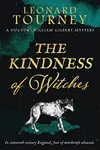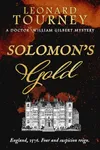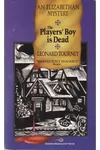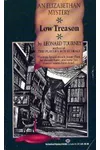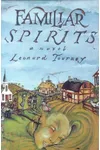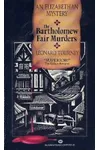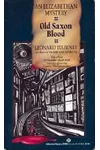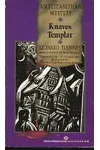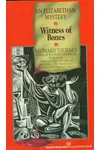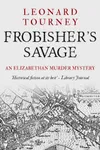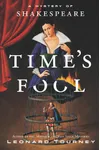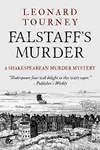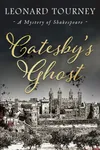Picture an American storyteller weaving murder and mystery in the vibrant tapestry of Elizabethan England—meet Leonard Tourney! Born in 1942 in Long Beach, California, Tourney is a master of historical mysteries, most famous for his Constable Stock series. With a scholar’s mind and a novelist’s flair, he brings the 16th century to life, blending authentic detail with gripping plots that keep readers hooked.
A professor, writer, and Shakespeare enthusiast, Tourney’s career spans academia and fiction, from scholarly articles to a fictional memoir of the Bard himself. His work invites us to stroll through cobblestone streets, solving crimes alongside his beloved characters. Ready to dive into his world?
The Making of Leonard Tourney
Leonard D. Tourney grew up in Southern California, the son of a soldier and a homemaker. After earning a B.A. from Brigham Young University in 1963, he pursued an M.A. and Ph.D. at the University of California, Santa Barbara. His academic journey took him from Western Illinois University to the University of Tulsa before he settled at UC Santa Barbara in 1985, where he taught writing and Shakespeare. Tourney’s naval service in Southeast Asia during the 1960s added depth to his worldview, shaping his disciplined yet imaginative storytelling.
His love for 17th-century British literature and history sparked his fiction career. In 1980, he debuted with The Player’s Boy Is Dead, launching his signature Joan and Matthew Stock series. Balancing teaching and writing, Tourney found harmony in both, once noting that his academic and creative pursuits were “highly compatible.”
Leonard Tourney’s Unforgettable Stories
Tourney’s Constable Stock series, set in the late Elizabethan era, follows Matthew Stock, a Chelmsford clothier and constable, and his sharp-witted wife, Joan. The Player’s Boy Is Dead (1980) introduces their crime-solving adventures as a troupe’s young actor is murdered, unraveling dark secrets. Low Treason (1983) pits the Stocks against a jeweler’s plot to betray the queen, showcasing Tourney’s knack for intricate conspiracies.
The Bartholomew Fair Murders (1986) is a fan favorite, plunging the Stocks into the chaotic St. Bartholomew Fair to catch a fanatic killer before Queen Elizabeth’s visit. Critics praise its vivid recreation of Elizabethan life, from bear-baiting to sectarian feuds. Later, Time’s Fool (2004), part of his Mystery of Shakespeare series, offers a fictional memoir of Shakespeare, blending historical depth with creative flair. Tourney’s style is meticulous yet lively, weaving authentic dialogue, well-drawn characters, and pungent historical details into tightly plotted mysteries.
His scholarly roots shine through in his attention to period accuracy, earning praise for transporting readers to a “joyful recreation” of the Elizabethan world. Whether exploring religious tensions or courtly intrigue, Tourney’s stories pulse with raw energy and timeless human drama.
Why Leonard Tourney Matters
Leonard Tourney’s impact lies in his ability to make history breathe. His Constable Stock series elevated the historical mystery genre, blending scholarly rigor with accessible storytelling. Readers and critics alike celebrate his authentic settings and complex characters, which offer a window into Elizabethan England’s social and cultural fabric. His work inspired fellow writers and delighted fans, earning high ratings for its immersive quality.
At 82, Tourney’s passion for storytelling endures, despite health challenges. His recent Shakespeare mysteries show his versatility, cementing his legacy as a bridge between academia and popular fiction. For mystery lovers and history buffs, Tourney remains a hidden gem worth discovering.
- Born: June 10, 1942, Long Beach, California
- Key Works: The Player’s Boy Is Dead, The Bartholomew Fair Murders, Time’s Fool
- Genres: Historical Mystery, Shakespearean Fiction
- Career: Professor at UC Santa Barbara, Brigham Young University
Snag The Player’s Boy Is Dead and dive into Leonard Tourney’s thrilling Elizabethan mysteries today!

